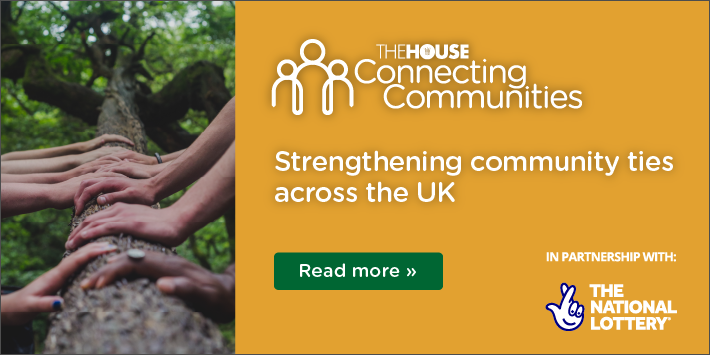It is ok not to feel ok. How can we ensure we look after our mental health?
We should also take the time to reflect on the impact Covid-19 has had on our mental health and wellbeing too writes Nadine Dorries MP. | Unsplash
4 min read
With Covid-19 cases rising and restrictions increasing in parts of the country, it is crucial to look out for our own wellbeing, and support each other in these testing times.
Over the last few months, we have been incredibly conscious of our physical health and following on from World Mental Health Day, we should also take the time to reflect on the impact COVID-19 has had on our mental health and wellbeing too.
We know that for some people, including people with pre-exiting mental health conditions, the past few months have been incredibly challenging, and we have worked hard to make sure help remains available for those who need it most. I want to thank the NHS who have remained open throughout the pandemic and all mental health professionals, who have worked so hard to support those most vulnerable.
Since March the government has worked closely with health bodies and charities to prevent and mitigate some of the most pressing impacts of Covid-19 on people’s mental health and wellbeing.
I want to take this moment to reiterate that in times of stress, it is ok not to feel ok. With Covid-19 case numbers rising and social restrictions increasing in parts of the country, it is understandable that many of us are feeling stressed, anxious and low.
We recognise the huge role mental health charities play in providing direct support alongside the NHS and have invested £9.2m to support mental health charities, including BEAT, Mind and local grassroots organisations to support them in continuing their vital work.
Already the funding has been used to support helplines and webchats, providing support networks for people experiencing anxiety and loneliness; providing safe spaces to reduce the risk of social exclusion of vulnerable people with ongoing, complex mental health problems and move specialist emotional and practical support for victims of sexual violence from face-to-face online.
But I want to take this moment to reiterate that in times of stress, it is ok not to feel ok. With Covid-19 case numbers rising and social restrictions increasing in parts of the country, it is understandable that many of us are feeling stressed, anxious and low.
What is crucial at this time is that we look out for our own wellbeing and support each other. We should all take some time to focus on selfcare - reach out to family and friends, take breaks at work, exercise regularly and use online wellbeing tools to help manage the difficult emotions that so many of us are feeling.
To help with this, Public Health England have published guidance to help everyone manage difficult feelings and low mood, and updated Every Mind Matters resources to provide tailored, practical steps and identify what is manageable and what is not.
A new Every Mind Matters campaign specifically targeting Children and Young People also launched in September, with dedicated resources for young people, their parents and carers to help support good mental health during what has been a very challenging time for many young people.
For those who feel they have no one to reach out to at this time, we have pioneered a £5m boost for national loneliness charities, raising awareness and providing advice on how people can support themselves and others safely through the Let's Talk Loneliness campaign, and a new Tackling Loneliness Network of high profile private, public and voluntary sector organisations.
If you are finding everything is getting too much, there is further support and help available. Psychological treatments and crisis lines have remained open to those who have needed them throughout the pandemic. Do not be afraid to ask for help – call your GP or mental health crisis lines.
Improving the nation’s mental health cannot be achieved through a narrow focus on the health service alone. Now, more than ever, we want to prevent the root causes of mental distress and mental ill health, look after ourselves, and support people, families and communities around us.

